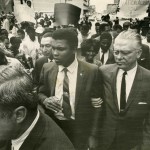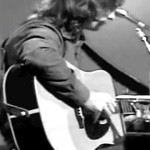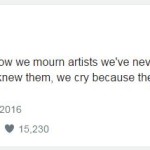The Greatest Thing That Ever Lived

By the time I could pay attention, The Greatest had already rejected his slave name, embraced the Nation of Islam, and refused to serve the armed forces of the United States.<fn>He was not a draft dodger. He just said fuck no, put me in prison if you have to, but fuck. No. That ain’t no dodge.</fn>
By the time I could pay attention, I remember adults in my orbit still calling him Cassius Clay, declaring they would never call him by that n****r name, that he had gotten way above his station, that he was a traitor, that he refused to appreciate everything “his” country had done for him, just another shiftless ingrate who didn’t know his place.
I can’t say I was carefully taught. But I was taught. I was taught that James Brown was barely more evolved than an ape or a gorilla, that MLK was one “one of the good ones, mostly” and that those animals were burning down “their own” neighborhoods.
But by the time I could pay attention, none of this stuff squared with what I was seeing with my own lying eyes.
By the time I could pay attention, MLK went from alive to dead, a victim of the racism that my people all wanted to believe was not as bad as “the bad ones” would suggest. You know, the bad ones. Like these guys.

By the time I could pay attention, James Brown was the guy who made some of my favorite music, a thrilling force of nature.
By the time I could pay attention, the futility and inherently racist cruelty of the Vietnam War was all too clear, even to this ten-year old. A 4th grade friend and I got in big trouble for refusing to stand and recite the Pledge of Allegiance, reasoning that there was no way in hell that we would ever fight in Vietnam, so pledging allegiance would be nothing but a lie.
We stood with Muhammad Ali. Even if we didn’t know it.
(That week, in an odd turn, Jose Feliciano performed the National Anthem at the World Series. His performance was an outrage, a provocation, yet another example of one of Those PeopleTM showing ingratitude at how much “their” country had done for them. His crime? Singing a British drinking song with a Latin feel. So the next day, the entire 4th grade was summoned to the classroom of one Miss Loretta Karp, a stooped skeleton from hell in high heels, with impossibly bright red hair, a woman who would have been six foot three if she was not in a constant hunch. She was mean as a wet cat whose bright red lipsticked smile existed only to signal impending cruelty. She began by noting that there had been some “unpleasantness” in school lately with “certain people” showing “poor patriotism by refusing to honor Our Flag”. She then went on to note that the World Series had been forever blemished by the desecration of the national anthem by a “foreigner. But by God,” we were going to fix that by having the entire 4th grade “stand together and sing the Star Spangled Banner as God meant it to be sung”. My pal and I got the giggles and could not stop. We got in trouble again. Such wabble wousers!)
Sure, we were risking nothing more than a stern talking to from our parents and disapproving looks from teachers and staff. Our courage was nothing, a flea fart in a hurricane. But still. We stood with Ali, two dopy white boys in the Connecticut suburbs who basically knew shit from shinola. But we knew that everything we were being taught about the war, about the way our nation was structured, did not square with things we saw on the electric radio picture box every night at dinner, pass the biscuits please. By the way, why are they burning down that village?
Too many things we were taught were just transparently wrong. This is not to cast full blame on our parents and teachers. They were themselves taught untruth, a set of lies that became matters of gospel faith. This was “their” country, and everyone else who was here needed to know their place.
So it’s easy to understand how my people, taught from birth that this was “their” country, would look at Cassius Clay’s declaration of “I’m the greatest thing that ever lived!” as not just braggadocio, but as a direct threat to their security and world view. For a colored man, such a thing was just not done.
And for him to embrace Black Nationalism the very next day, to clearly state uncomfortable truths about “their” nation, could only mean one of two things: one of them was lying. And it had to be, just had to be, that loud-mouthed boy.
And then, he rejected “their” war, “their” draft, “their” nation in terms that offered no comfort, no conciliation:
“I got nothing against no Viet Cong. No Vietnamese ever called me a nigger. They never lynched me or raped my grandmother. Why should they ask me to put on a uniform and go 10,000 miles from home and drop bombs and bullets on Brown people in Vietnam while so-called Negro people in Louisville are treated like dogs and denied simple human rights? No I’m not going 10,000 miles from home to help murder and burn another poor nation simply to continue the domination of white slave masters of the darker people the world over. This is the day when such evils must come to an end. I have been warned that to take such a stand would cost me millions of dollars. But I have said it once and I will say it again. The real enemy of my people is here. I will not disgrace my religion, my people or myself by becoming a tool to enslave those who are fighting for their own justice, freedom and equality.… If I thought the war was going to bring freedom and equality to 22 million of my people they wouldn’t have to draft me, I’d join tomorrow. I have nothing to lose by standing up for my beliefs. So I’ll go to jail, so what? We’ve been in jail for 400 years.”
He gave up everything for this stand. His titles, his income. He was not allowed to practice his craft. He was, in fact, one of White America’s most hated symbols, even as he became a hero to Black America and to people around the world. When he was finally allowed to fight again, the battle lines were pretty clear. Joe Frazier was “one of the good ones”, the guy who would shut Ali up for good. The rest is, as they say, history. You can look it up.<fn>Or you can turn on the electric picture radio machine for round the clock Ali hagiography.</fn>
As with MLK III, the posthumous softening of the Ali image is underway. Just as King was transformed from a warrior badass into a cuddly teddy bear of non-violent accommodation, Ali is being morphed into an anodyne citizen of the world, a guy who was great with kids, who met with everyone from princes to paupers. A twinkly-eyed elder statesman who, robbed of speech, became a blank slate upon which we could all shine our imagining of who and what this guy was in life.<fn>Even Trump blathered on about how they were such “good friends”, ffs.</fn>
But Ali, like King, was way more than a teddy bear.
Last night we began watching the remake of Roots. It’s a grueling affair. Central to the first episode is the importance of a person claiming and owning his real name. Kunta Kinte endured a savage beating before he whispered “Toby” in acceptance of his fate. Ali flipped that, renouncing the name his more recent ancestors had been forced to assume. And he took a beating for it. The nation wanted a nice Joe Louis Negro, a quiescent and accommodating character who would make white folks feel like they are not racists, because they just love them one of the good ones. Someone who transcended race.
Writer Stereo Williams dropped this tweet today:
“Transcended race” typically means “Helped me forget to be racist.”
Ali never let me forget to be racist. Such a thing is impossible for this product of White Southern upbringing. If anything, I want to remember that I am a racist, constantly. I don’t need to be let off the hook for my part in this legacy.
By the time I could pay attention, Ali helped me understand that the Vietnam War was an immoral, indefensible violation of human decency. That was early on in my lifetime of paying (variable) attention to our world, and it was no small thing to realize that one of Those PeopleTM was correcting a lie handed me by “my people”.
What else did I have wrong? The list is seemingly endless.


